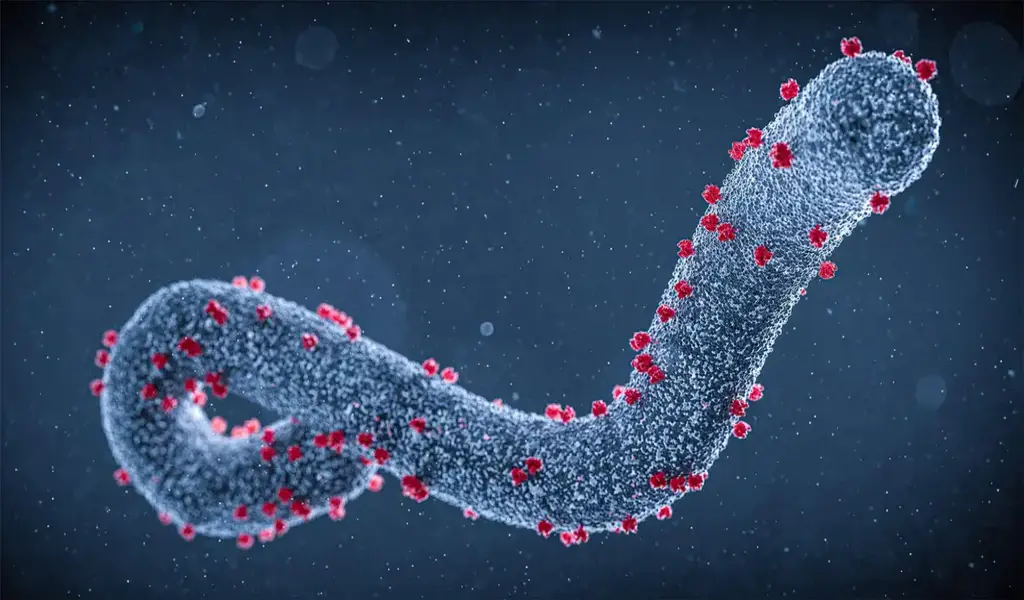(CTN News) – After Equatorial Guinea reported its first epidemic of the Marburg virus sickness on February 13, health experts are rushing to investigate whether new vaccinations may guard against a deadly illness.
Similar hemorrhagic fever symptoms are caused by the virus, which is linked to the Ebola virus. It may be deadly in up to 88% of cases.
Urgent investigation into Marburg virus vaccinations
Yesterday, an urgent conference of the World Health Organization (WHO) in Geneva, Switzerland, was held to discuss the viability of testing Marburg vaccines in different stages of development.
But they assert that the likelihood of a successful trial is low since other preventative measures, such as quarantine, may end the epidemic before even a single vaccine dosage can be given.
At the WHO conference, epidemiologist John Edmunds from the London School of Hygiene & Tropical Medicine remarked, “I cannot underscore the need for haste enough.”
Epidemic in Equatorial Guinea
The epidemic is located in the Kié-Ntem region, which borders Cameroon and Gabon, in the north of Equatorial Guinea. With the first documented case dating to early January, it has been connected to 9 fatalities among 25 suspected cases.
Edmunds states this makes it bigger than many of the 16 Marburg outbreaks identified. After effective treatments, outbreaks “have tended to be modest and cease rather quickly.”
A 1998–2000 outbreak in the Democratic Republic of the Congo associated with 154 cases and 128 fatalities, and a 2004–2005 pandemic in Angola that resulted in 227 fatalities out of 252 recorded cases are the outliers.
During this week’s conference, officials from the WHO reviewed the logistics of testing Marburg virus vaccinations in Equatorial Guinea.
Top contenders for Marburg virus vaccinations
Viral-vector vaccines, such as the COVID-19 vaccine created by AstraZeneca and the University of Oxford in the UK, are present in all of the top competitors.
While a candidate created by Janssen in Beerse, Belgium, employs the human adenovirus on which the company’s successful COVID-19 vaccine was based, the Sabin Vaccine Institute in Washington, DC, uses a modified chimpanzee adenovirus to transmit instructions for cells to manufacture a Marburg virus protein (Janssen is a subsidiary of Johnson and Johnson).
Candidates are based on weakened versions of the vesicular stomatitis virus, the vector used in the first approved Ebola vaccine, and come from Public Health Vaccines (PHV) in Cambridge, Massachusetts, the International Aids Vaccine Initiative (IAVI) in New York City, and Auro Vaccines in Pearl River, New York.
Developers said at the conference that none of the vaccines are commercially accessible in substantial numbers; availability varies from a few hundred doses for the Sabin and PHV vaccines to a few thousand for Janssen’s proposal.
IAVI has no doses of its vaccine in stock; it is being co-developed with Rahway, New Jersey-based Merck, a major US pharmaceutical company.
Only the Janssen and Sabin vaccines have undergone preliminary human testing in the US. Studies on monkeys indicate that all the top contenders provide significant defense against the Marburg virus illness.
Possibility of vaccination trial in Equatorial Guinea
According to Ana Maria Henao-Restrapo, who co-leads the WHO’s R&D Blueprint initiative to create the basis for such studies during epidemics, if a vaccination trial in Equatorial Guinea were to proceed, a non-governmental organization that assists the WHO would decide which vaccines to test.
Any trial would also need the approval and participation of the government of Equatorial Guinea.
It’s doubtful that enough cases will arise before the present epidemic is brought under control for researchers to establish with certainty whether any vaccine is effective or not, Edmunds adds, even if a study can get off the ground. “Isn’t that a two-edged sword? It’s excellent news for the country of Equatorial Guinea and its citizens, but it might be terrible news for science.
However, academics at the symposium said that data supporting the efficacy of any vaccine might be accumulated over several epidemics.
The efficacy of vaccinations and the immunological response they induce in communities at risk of future epidemics might be learned from a vaccine experiment in Equatorial Guinea.
Related CTN News:






